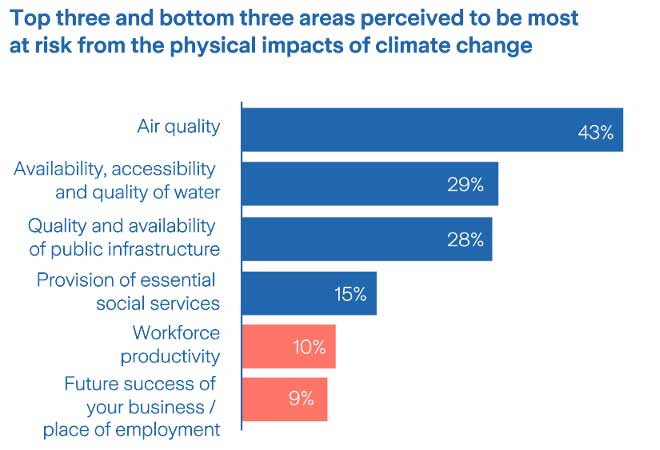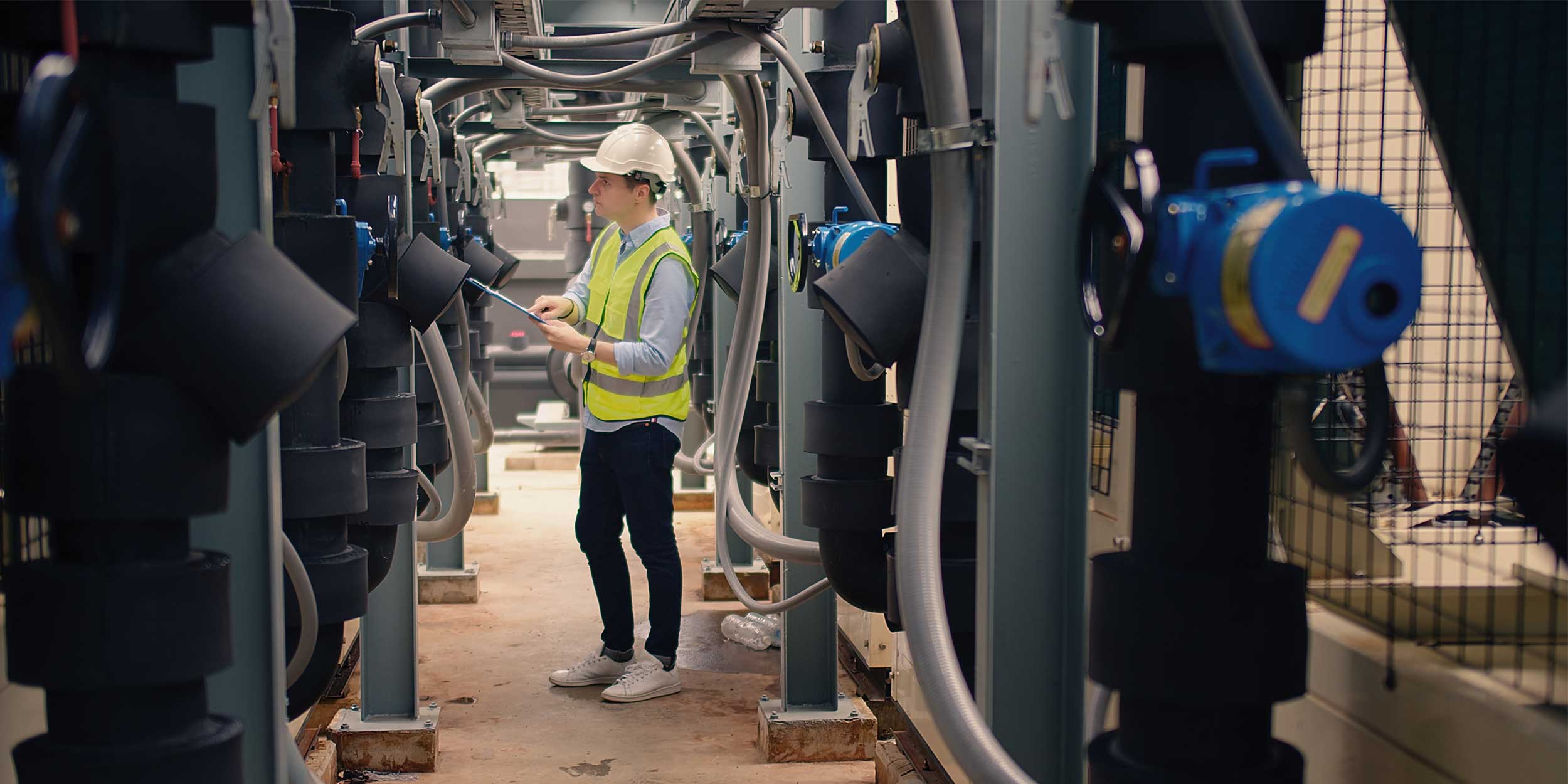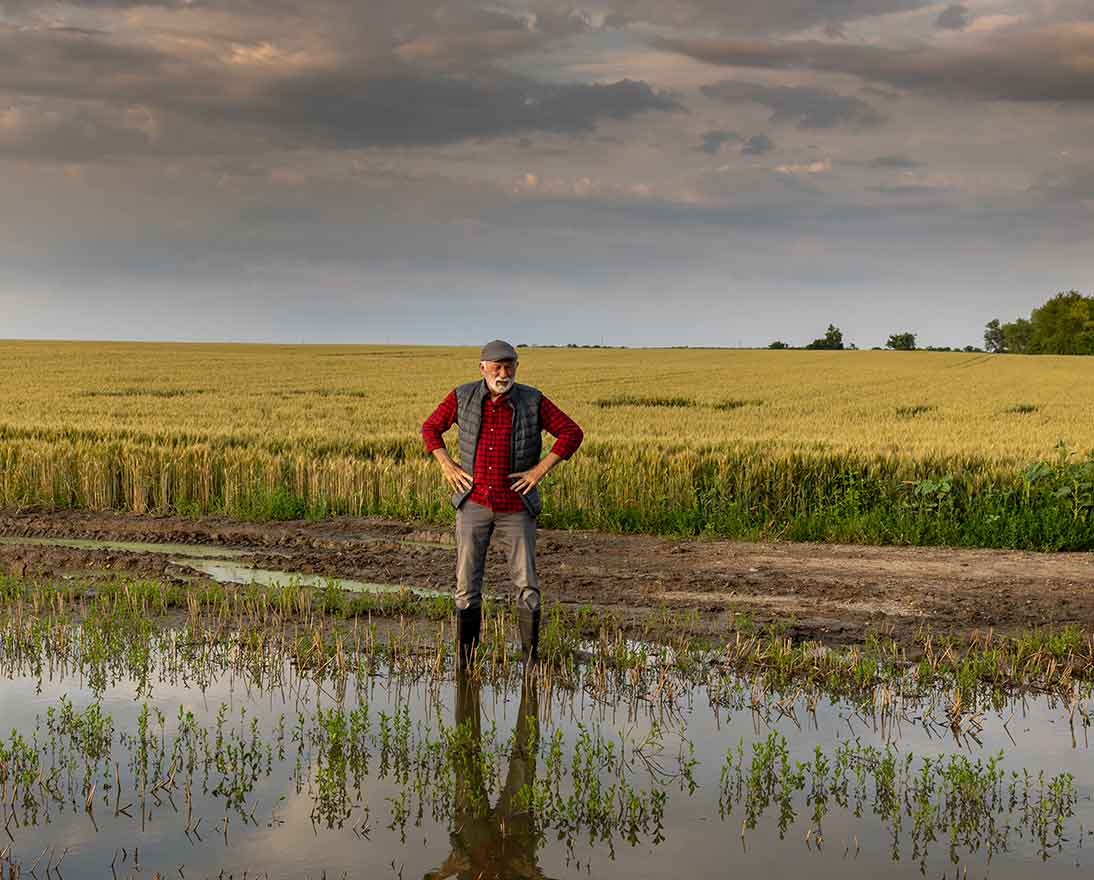Climate change is impacting workforce productivity. Here’s how businesses can step up.
Climate resilienceArticleJanuary 20, 2025
New research suggests we’re underestimating the impact of climate change on employees’ wellbeing. Here’s how businesses can address this complex risk – and build resilience.
When we discuss climate change, it is often in response to cataclysmic headlines. From drought and forest fires to extreme storms, climate upheaval threatens communities from the Amazon to Zimbabwe. The recent wildfires in Los Angeles, for example, were a stark reminder of the importance of establishing a clear plan for wildfire mitigation, response and recovery.
Most reports have focused on how the fires in California are decimating people’s homes but, amid the chaos, businesses large and small also face the dire consequences of these extreme climate events. The human toll leads to significant impacts on employees, threatening their livelihoods, undermining their wellbeing and affecting their ability to do their jobs.
And though the impacts of climate change are often sudden, they can also be stealthy. Heat stress, for example, is projected to cost the global economy the equivalent of 80 million full-time jobs, or USD 2.4 trillion in 2030 – more than the current GDP of Canada or Brazil.
Despite the evidence and what this means for our livelihoods, new research by Economist Impact, supported by Zurich Insurance, suggests that for most people the impact of climate change on workforce productivity is not a major concern.
Here’s why that matters – and what businesses can do to address these risks.
How climate change undermines productivity
Economist Impact's latest research surveyed 5,000 people across 10 global cities to gauge the public perception of climate risk and resilience. ‘Resilience from the ground up: assessing city-level approaches to climate risk and adaptation’ highlighted a blind spot for many respondents: the impact of climate change on workforce productivity and the future success of their business or place of work. Participants ranked these concerns lowest when asked which areas they felt were most at risk.

And yet, the potential impacts for workers – and our shared prosperity - are significant and far-reaching. The International Labour Organization (ILO) estimates that climate change creates a ‘cocktail’ of serious health hazards for 70 percent of the world's workers.
Extreme weather, made more likely by climate change, could expose outdoor workers to debilitating heat stress, ultraviolet radiation, suffocating humidity and increased air pollution.
With more extreme conditions, chronic illnesses and respiratory conditions are likely to be exacerbated. Allergens such as pollen and molds will thrive in warmer conditions, as will harmful bacteria such as Legionella. As global temperatures rise, so too does the risk of insects carrying vector-borne diseases such as malaria, dengue and zika. This will likely lead to an increase in the use of pesticides, which could further damage the health of agrifood workers.
Our rising use of ventilation and air conditioners in the workplace will expose people to more indoor toxins, such as volatile organic compounds and aeroallergens, while transferring more heat from our buildings onto our streets.
All these risk factors could impact employees’ wellbeing and impair their ability to fully show up at work. There are also serious implications for people's mental health.
As Risto Schmid, Head of Climate Resilience Switzerland at Zurich Resilience Solutions, explains, climate change also poses a potential challenge for human resource planning: “In the longer term, people suffering because of heat, water scarcity or even inadequate energy infrastructure may choose to move away. So, to protect productivity, businesses, in cooperation with local communities, must consider both the physical risks and their workers’ wellbeing.”
A call for business to lead the way
The research suggests there is a clear expectation that businesses should play a greater role in building preparedness and resilience to climate change. More than half (58 percent) of respondents said they felt businesses were not doing enough to adapt.
Just as they assess climate risks for their tangible assets, businesses must prepare to support their people in a changing world. By helping to build climate resilience, companies can show leadership and achieve sustainable growth.
“Many businesses have a rather short-term view,” Schmid says. “Investing in climate resilience may not offer the best immediate return. But building resilience from the start is much cheaper and easier than having to retrofit later. Just as with our personal health, we may not see the benefits right away, but adopting good behaviors is an investment in a better future.”
How companies can mitigate climate risks
Every business can take vital steps now to future-proof their operations and processes. Nurturing a healthy workforce is key to that resilience. By monitoring conditions and setting up alerts and protocols, companies can ensure they’re making informed decisions to protect employees.
Year-round, simple workplace safeguarding measures include providing shade, water and breaks during intense heat. Offering flexible schedules or adjusting working hours when temperatures peak also helps people to stay safe and productive.
Infrastructure is key, too: from maintaining or improving heating, ventilation and cooling systems to investing in climate upgrades for buildings, vehicles and other facilities.
Alongside these investments, it is vital to move forward hand in hand with employees themselves. Which measures will make the most difference to them? Support in the form of health and safety training, social protection provisions or local initiatives can help to protect employees’ physical and mental wellbeing.
For Schmid, investing in wider community resilience is key. “Whether you’re managing water run-off from your building roofs and car park so it doesn’t worsen local flooding, or raising climate awareness through education, the role of business doesn’t just stop at the company gates.”
Responsibility and accountability
To set themselves apart, proactive business leaders are also creating and enforcing best practices and regulations that address climate risk in the workplace.
Alongside corporate responsibility, participants in the research made clear the importance of government action: respondents felt that national and local governments should take primary responsibility for improving climate adaptation in their cities (50 percent and 46 percent respectively). By championing public-private action, companies have the power to amplify their impact, helping to design policies that both encourage and facilitate corporate climate resilience.
To conduct a 360-degree assessment of their rapidly changing risk landscape, business leaders can lean on industry experts such as Zurich Resilience Solutions - a risk consultancy that combines in-depth data analysis of a business’s operations with 150 years of risk management experience.
“Often, we work with clients starting at a portfolio level to identify their most critical sites,” Schmid says. “And then we perform specific in-depth on-site analysis of these sites. Together with the client, this allows us to identify how different perils interact, such as heat and water, for example.” With this awareness, he adds, companies can both reduce their exposure to risk, and bounce back faster after an incident, protecting market share and jobs. “Insurance is important, but it should be the last line of defense. Prevention and preparedness are key. Also, because a company’s reputation can’t be insured.”
Workforce wellbeing: the heart of climate resilience
As business leaders the world over strive to mitigate the risks of a changing climate, none can afford to overlook the importance of people. Alongside building resilience into operations, it is vital for companies to work with employees, communities and authorities. This enables them to not only to prepare for what is to come – but to shape a world where economic sustainability and human prosperity go hand in hand.

Services beyond risk transfer
Zurich Resilience Solutions - data-led risk engineering and risk management services





